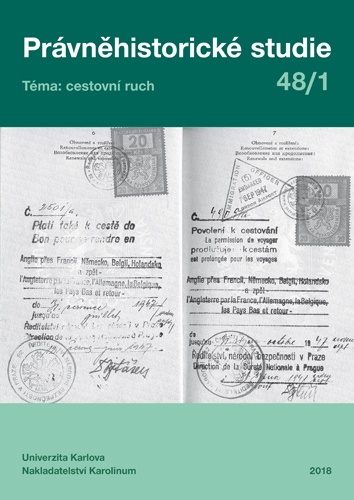In iure cessio hereditatis
In iure cessio hereditatis
Author(s): Veronika KleňováSubject(s): Law, Constitution, Jurisprudence, History of Law
Published by: Univerzita Karlova v Praze, Nakladatelství Karolinum
Keywords: in iure cessio hereditatis; hereditas; necessary heirs; voluntary heirs; repudiation of an inheritance
Summary/Abstract: In iure cessio hereditatis ante aditionem could only be performed by a voluntary intestate heir. An heir appointed in the testament did not have such a right, because the in iure cessio hereditatis ante aditionem was an extraordinary means to prevent that the deceased remained without heirs. Post aditionem could be in iure cessio hereditatis exercised by both heres legitimus and heres testamento scriptus.The object of the in iure cessio hereditatis ante aditionem was a delata hereditas – the right to be an heir. The transferee became an heir as if he himself were called to be an heir. He became an heir immediately due to the very in iure cessio hereditatis. He did not have to perform an additional aditio.In accordance with the semel heres semper heres rule, it was impossible to transfer ius successionis after the transferor became an heir through aditio. Via in iure cessio hereditatis post aditionem could only be transferred those components of hereditas that were admissible object of in iure cessio; that were corpora hereditaria but not the obligations. The transferor remained liable to creditors and the debitores hereditarii were released.Sabinians held that the heredes sui et necessarii cannot perform in iure cessio hereditatis. The reason was that the in iure cessio hereditatis was considered to be a rejection of the inheritance, and thus incompatible with the position of the necessary heir. Procu- lians contended the in iure cessio to be valid with the same effect as if it had been done by a voluntary heir after acceptance of an inheritance. The dispute was relating only to sui (not to slaves as necessarii heredes). The proculians intended to get the position of the sui et necessarii closer to that of heredes voluntarii. It is not surprising, if one considers that the praetor granted to sui a beneficium abstinendi as a means by which the sui could achieve a similar result of a rejection of an inheritance. The opinion of the proculians did not prevail.
Journal: Právněhistorické studie
- Issue Year: 48/2018
- Issue No: 1
- Page Range: 97-110
- Page Count: 14
- Language: Czech

